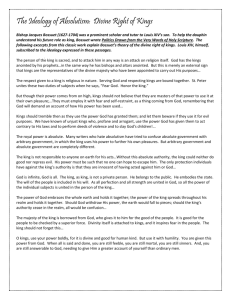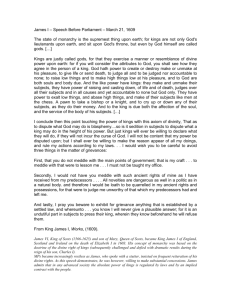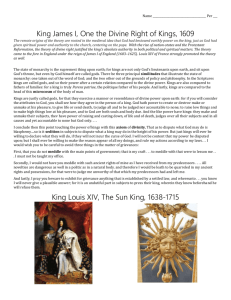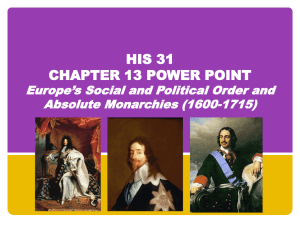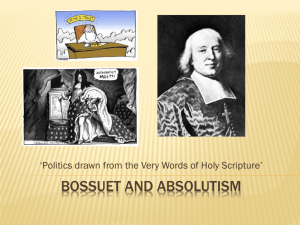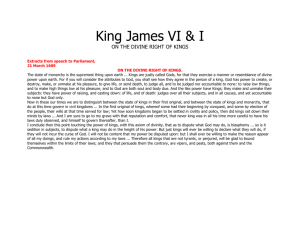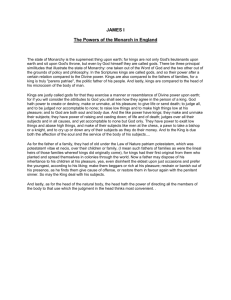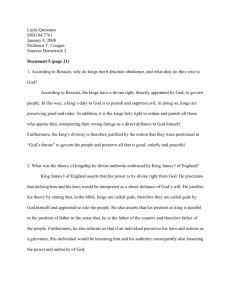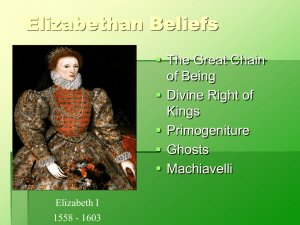Jacques-Benigne Bossuet, Politics Drawn from the Very Words of
advertisement
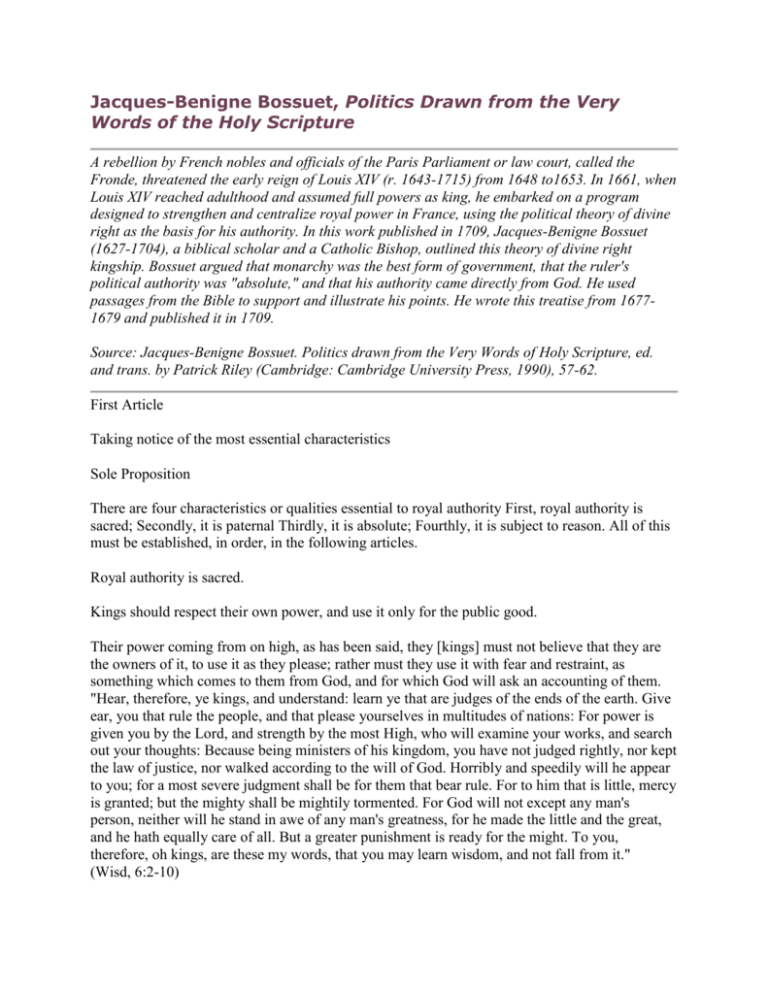
Jacques-Benigne Bossuet, Politics Drawn from the Very Words of the Holy Scripture A rebellion by French nobles and officials of the Paris Parliament or law court, called the Fronde, threatened the early reign of Louis XIV (r. 1643-1715) from 1648 to1653. In 1661, when Louis XIV reached adulthood and assumed full powers as king, he embarked on a program designed to strengthen and centralize royal power in France, using the political theory of divine right as the basis for his authority. In this work published in 1709, Jacques-Benigne Bossuet (1627-1704), a biblical scholar and a Catholic Bishop, outlined this theory of divine right kingship. Bossuet argued that monarchy was the best form of government, that the ruler's political authority was "absolute," and that his authority came directly from God. He used passages from the Bible to support and illustrate his points. He wrote this treatise from 16771679 and published it in 1709. Source: Jacques-Benigne Bossuet. Politics drawn from the Very Words of Holy Scripture, ed. and trans. by Patrick Riley (Cambridge: Cambridge University Press, 1990), 57-62. First Article Taking notice of the most essential characteristics Sole Proposition There are four characteristics or qualities essential to royal authority First, royal authority is sacred; Secondly, it is paternal Thirdly, it is absolute; Fourthly, it is subject to reason. All of this must be established, in order, in the following articles. Royal authority is sacred. Kings should respect their own power, and use it only for the public good. Their power coming from on high, as has been said, they [kings] must not believe that they are the owners of it, to use it as they please; rather must they use it with fear and restraint, as something which comes to them from God, and for which God will ask an accounting of them. "Hear, therefore, ye kings, and understand: learn ye that are judges of the ends of the earth. Give ear, you that rule the people, and that please yourselves in multitudes of nations: For power is given you by the Lord, and strength by the most High, who will examine your works, and search out your thoughts: Because being ministers of his kingdom, you have not judged rightly, nor kept the law of justice, nor walked according to the will of God. Horribly and speedily will he appear to you; for a most severe judgment shall be for them that bear rule. For to him that is little, mercy is granted; but the mighty shall be mightily tormented. For God will not except any man's person, neither will he stand in awe of any man's greatness, for he made the little and the great, and he hath equally care of all. But a greater punishment is ready for the might. To you, therefore, oh kings, are these my words, that you may learn wisdom, and not fall from it." (Wisd, 6:2-10) Kings must tremble, then, in using the power that God gives them, and consider how horrible is the sacrilege of using for evil a power that comes from God. We have seen kings seated on the throne of the Lord, holding in their hand the sword that [God] himself has placed there. What a profanation, what audacity, on the part of unjust kings, to be seated on the throne of God in order to give judgments contrary to his laws, and to use the sword he has placed in their hand, to do acts of violence and cut the throats of children! Let them respect their power, then, because it is not their power, but the power of God which must be used in a holy and religious way. St. Gregory of Nazianze spoke thus to the emperors: "Respect the purple; recognize the great mystery of God in your persons; He governs by himself the celestial things: He divides those of the earth with you. Be gods, then, to your subjects." (St. Gregory, Discourse, XXXV. 11) That is to say, govern them as God governs, in a way that is noble, disinterested, beneficent - in a word divine.

